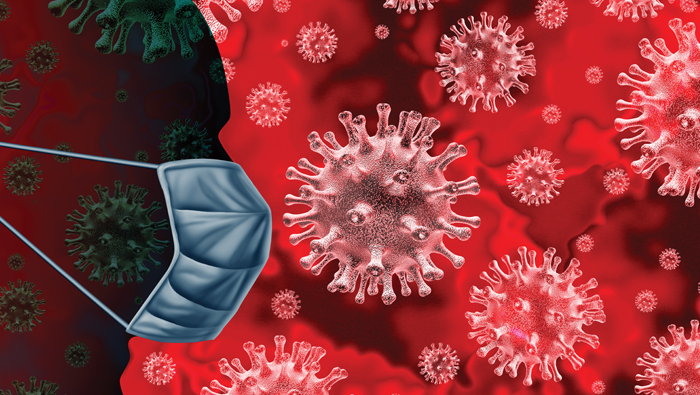
Muscat: COVID-19 infection rates in Oman are on the decline, which means the country has passed its infection peak, a doctor in the country has said.
Dr Zaid Al Khattab Al Hinai, who is an assistant professor at the College of Medicine at Sultan Qaboos University (SQU), and an infectious diseases consultant at SQU Hospital, said the gradual decline in infections is expected to continue over the coming weeks.
“I think infections will reach low levels about four to six weeks before Ramadan, but infections may also rise if there is a significant lack of precautions in place,” he said, speaking exclusively to the Times of Oman. “This is what we saw in countries such as Denmark, where infections rose past the peak once again, after restrictions were eased significantly.”
Al Hinai agreed with the steps being taken by the Supreme Committee when it came to the gradual easing of restrictions needed to stop the spread of COVID-19, as opposed to completely doing away with a number of measures at once.
Although infections during Oman’s Omicron surge have peaked, people are reminded that they still need to follow basic precautionary measures such as wearing masks, washing hands, sterilising surfaces, using sanitisers, keeping windows open where possible to increase ventilation, avoiding contact with people who have the disease, etc.
“If you feel that you have symptoms, such as sore throat, congested nose, cough, fever or body aches, self-isolate and consult a doctor immediately,” he explained.
“Also, please get vaccinated as soon as you are able. This includes taking the booster dose as well. If you need to take a flu shot, do that as well.”
“Usually, we see a decline in the number of daily deaths from a disease about two to four weeks after there has been a drop in daily infection numbers,” added Al Hinai.
“This is because in the case of people who have severe infection from the virus, their infections may flare up about a week after contracting the virus. In such cases, treatment, if successful, could take weeks.”
Adding further optimism, Al Hinai said that the immunity people have gained from vaccination, as well as recovery from previous infections, has significantly reduced the severity of the disease. While most deaths in prior waves were directly linked to complications from the virus, an increasing percentage of deaths in the Omicron wave are due to other causes.
For example, in Denmark, it is estimated that about half of the deaths are due to COVID-19, while for the other half, the virus was detected but death might have been due to other causes.
“The infections we have seen over the past few weeks – and at present – are largely due to the Omicron variant: if we assume that 100 patients have COVID, 99 percent of them will be infected with that variant,” he said. “It has also been previously confirmed by the Ministry of Health that 99 percent of people infected with COVID have contracted the Omicron variant.”
He added: “The Omicron variant has completely dominated Covid-19 cases in this wave. In other words, other variants have largely subsided, and the Omicron variant accounts for essentially all Covid-19 at the present time.”
Oman recorded 1,430 fresh infections from COVID-19 on Wednesday, February 16, 2022. Although 2,114 people did recover from the disease, five people died from COVID-19.
This brings the total number of positive cases to 370,620 people. 4,221 people in Oman have sadly died from the disease since the start of the pandemic, while 347,243 people have recovered.